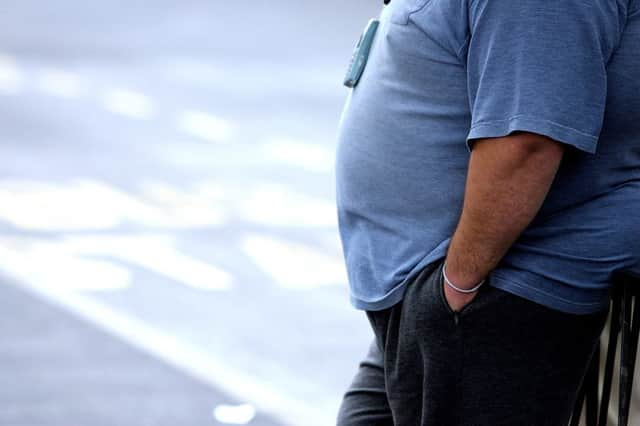Fibre milkshake discovery could help beat obesity
This article contains affiliate links. We may earn a small commission on items purchased through this article, but that does not affect our editorial judgement.


Based on a molecule produced by gut bacteria, the powder taken as a shake contains the fibre inulin-propionate ester.
This affects the region of the brain that is responsible for high-calorie cravings, effectively switching them off.
Advertisement
Hide AdAdvertisement
Hide AdScientists at the University of Glasgow and Imperial College London also found that as well as reducing cravings, people who drank it ate up to 10 per cent less of a healthy dish than normal.
They asked 20 volunteers to consume a milkshake that either contained the ingredient or a type of fibre called inulin.
Previous studies have shown bacteria in the gut release a compound called propionate when they digest the fibre inulin, which can signal to the brain to reduce appetite.
But they discovered that the inulin-propionate ester supplement releases much more propionate in the intestines than inulin alone.
After drinking the milkshakes, the participants in the current study underwent an MRI scan, where they were shown pictures of various low or high calorie foods such as salad, fish and vegetables or chocolate, cake and pizza.
Volunteers who drank the milkshake containing inulin-propionate ester, they had less activity in areas of their brain linked to reward, but only when looking at the high calorie foods.
These areas, called the caudate and the nucleus accumbens, found in the centre of the brain, have previously been linked to food cravings and the motivation to want a food.
They also rated the food they were shown and the high calorie choices appeared less appealing.
Advertisement
Hide AdAdvertisement
Hide AdThey were also given a bowl of pasta with tomato sauce, and asked to eat as much as they like and those whose milkshake contained inulin-propionate ester ate 10 per cent less the one only containing inulin.
Professor Gary Frost, senior author of the study published in the American Journal of Clinical Nutrition, said: “Our previous findings showed that people who ate this ingredient gained less weight, but we did not know why.
“This study is filling in a missing bit of the jigsaw and shows that this supplement can decrease activity in brain areas associated with food reward at the same time as reducing the amount of food they eat.”
He said that to replicate the amount of fibre needed in the shake you would have to eat 60 grams a day, when the national average is 15 grams.
Claire Byrne, a PhD researcher also from the Department of Medicine explained that using inulin-propionate ester as a food ingredient may help prevent weight gain: “If we add this to foods it could reduce the urge to consume high calorie foods.”
Dr Tony Goldstone, co-senior author of the study added: “This study adds to our previous brain imaging studies in people who have had gastric bypass surgery for obesity.
“These show that altering how the gut works can change not only appetite in general, but also change how the brain responds when they see high-calorie foods, and how appealing they find the foods to be.”
Dr Douglas Morrison, author of the paper from the Scottish Universities Environmental Research Centre at the University of Glasgow, commented: “We developed inulin-propionate ester to investigate the role of propionate produced by the gut microbiota in human health.
Advertisement
Hide AdAdvertisement
Hide Ad“This study illustrates very nicely that signals produced by the gut microbiota are important for appetite regulation and food choice.
“This study also sheds new light on how diet, the gut microbiome and health are inextricably linked adding to our understanding of how feeding our gut microbes with dietary fibre is important for healthy living.”
DOWNLOAD THE SCOTSMAN APP ON ITUNES OR GOOGLE PLAY
